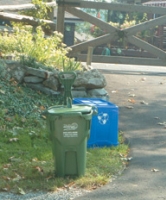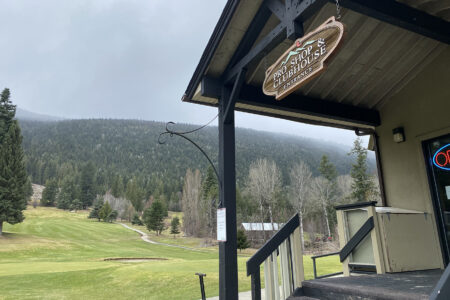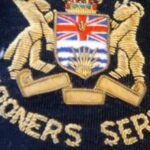Move over garbage as food scraps program takes the lead in waste reduction
The streets of the Valmar subdivision will be lined with beige bins full of compostable items to be collected by a special split-bodied waste truck this week as Grand Forks pilots an organic waste recovery project.
The project, the first in the Boundary region to include organics as part of their garbage services, will be run by Kettle Valley Waste, the subcontractor for garbage collection for the Regional District Kootenay Boundary (RDKB).
Starting today, Wednesday, Jan. 18, about 130 homes are participating in the green bin kitchen food waste collection service project. If successful, this could mean the entire City of Grand Forks, Christina Lake and Area D will be putting the same beige bins out on the curb over the next year or so.
Tim Dueck, solid waste program coordinator for the RDKB, said so far residents have been very receptive to the change. Last week the RDKB handed out the beige bins used in collecting the compostable debris and paper liners to make cleaning the bins easy.
He said the concept is not a new one but this is the first time it has been attempted in the B.C. Interior.
“We’re not reinventing the wheel here, but repurposing the wheel to fit the needs of our area,” said Dueck, adding many cities across the province and Canada already implement a similar system.
About 40 percent of the garbage being hauled away to our local landfill is compostable material, said Dueck. Compostable food scraps include everything from egg shells to potato peels and stale baked goods.
Since the RDKB has closed three landfill sites in the area over the past five years, reduction is key.
“If we want to reduce waste at the rate landfills are filling up, then we need to address that 40 percent,” said Dueck.
Food scraps to be picked up weekly
Dueck said some Valmar subdivision residents did express concern over a reduction in the garbage collection service from once a week to every other week under the pilot project.
They will now have compostable garbage collection every week, recycling and other garbage on alternating weeks.
“It is our definition of garbage that is changing (and not the services). Now we will have a whole lot less (waste) that is defined as garbage,” said Dueck.
Expense was another concern raised in past city council meetings.
But the cost to residents may even be cheaper than the current gargage collection fees. Annually the average Grand Forks resident pays $108 for garbage collection. Under this new program, it will cost $70 a year plus a yet to be determined tipping fee for all other garbage waste, said Dueck. He anticipates the tipping fee won’t be more than $30 additional dollars, bringing the annual collection fee to $100.
“If people have more garbage than they should, the garbage collection will cost more. If they are fully participating in the composting program then they will have less garbage,” said Dueck. “People will have some incentive to participate in the program or it will cost them more.”
Next week the RDKB will be meeting with the Grand Forks city council where the fee structure will become clearer, said Dueck.
Compostable waste headed to greener pastures
The compostable waste collected in the food scraps recycling pilot project will be added to the pile of yard and garden waste the RDKB has already been collecting to create a balanced compost product.
Compost is made up of two major components: carbon and nitrogen. Carbon comes from things like wood and garden waste. Nitrogen comes from food scraps. Right now there is more carbon than nitrogen in the Grand Forks landfill composting bins.
The compost created from this pilot project — and another two to three years of additional food scraps — will be used by the RDKB to cover up the three landfills that have been closed to create a suitable landscape for vegetation to grow, for slope stabilization and to control methane gas emissions released from the old landfill site, said Dueck.
Once the RDKB has exhausted their needs for the compost, the region may explore other options like creating a “pure” enough product to sell back to the community for their own compost needs.
The pilot project is scheduled to go until July 1, 2012. At that point the RDKB will review the service delivery, equipment and participant response to the program before starting on a city-wide version of it.
For more information about the food scraps recycling pilot project or to view a complete list of what can or cannot be put in the beige food waste bin, please visit www.rdkb.com.






















